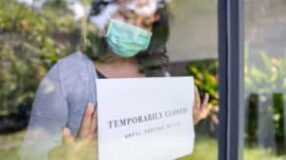By Meredith Turney, Senior Director of Leadership Development and Strategic Communications at State Policy Network
During times of crisis, people look to trusted figures and organizations for assurance and direction. During the current COVID-19 crisis, the growing anxiety and tension is causing the public to look to their political and health leaders for comfort and guidance.
While most state think tanks don’t specialize in pandemic health crises, they do offer sound public policies that seek to balance personal freedom with those things government is best suited to do on behalf of the people. The following are some communications and messaging guidelines to help you navigate this crisis and potential future crises.
1. Be compassionate, not tone deaf
During times of crisis, when lives are at stake, it’s critical to know when to speak publicly and when to abstain from public comment. If your organization does want to make comments about public policy during this time, then make sure the comments express sympathy and concern for everyone affected by the crisis.
Sending a press release or policy paper about tax reform or school choice won’t get much attention right now, with everyone focused on public health safety. Sending one could also make your organization look tone deaf—like it’s in a policy bubble that doesn’t take into account the realities people are facing right now. However, sending a note to supporters, donors, lawmakers, and other key audiences conveying your concern during this time and how your team plans to navigate it will bring comfort and assurance to these key audiences.
2. Share powerful community stories
While it may seem counterintuitive for a state public policy organization, now is the time to highlight the incredible work and care being shown within our communities. Your organization can “hit pause” on policy-oriented communications and instead show the great heart and spirit of the citizens in your state. This will show that your organization is in tune with its state community. It will still enhance your brand by focusing on its core mission: A thriving, flourishing state where everyone has opportunity. Now is the time to tell stories of communities coming together to thrive and flourish through a grave threat. Detailed policy debates can take place after the imminent threat has passed.
3. Focus on relevant policy solutions
If your organization does focus on health-related issues, now is the time to step forward and share ideas and research that can help government leaders and the public make wise decisions. If your organization doesn’t research health issues, then partner with one of SPN’s affiliate members or partners to share their content. This strengthens your brand position, helps your partners, and gives solid information to those most in need of it right now.
4. Participate in community building
“Social distancing” is the latest buzzword born of the COVID-19 pandemic. This means most people are avoiding public events and large crowds until the initial threat of the virus passes. So that probably means you’ll need to cancel planned events and plan more virtual meetings. Community building doesn’t just happen in-person. It can also happen in a virtual setting. Many people are staying at home right now. They’re reading more articles, watching more news, and listening to more podcasts. Tailor your content to things that will interest these audiences and then engage them in conversation.
Host an online fundraiser for local health nonprofits or food banks. Direct attention to the leaders in the community making a difference during this time. Interview some of them via Zoom or phone for video or podcast content. All of these ideas will build your brand and bring much-needed information to leaders and the public.
The urge to panic is high right now. But the more information think tanks can share with the public and provide clear, thoughtful, insightful guidance, the better for our organizations and our communities. Think long-term about how to position your organization through this crisis and beyond. It will build trust in your brand and foster greater community involvement.










